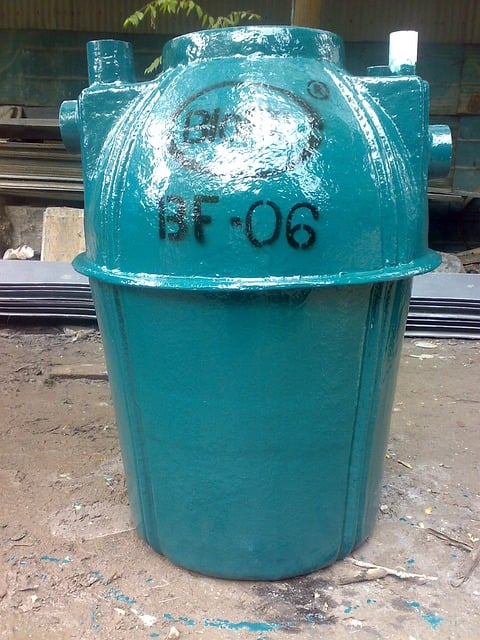Regular maintenance of your septic system is crucial for effective wastewater treatment and extending its lifespan. This includes annual inspections, pumping every 3-5 years, proper water usage, avoiding non-biodegradable disposal, and timely repairs. By implementing these strategies, homeowners can prevent clogs, ensure efficient operation, and protect the environment around their septic tanks.
Extending the life of your septic system starts with understanding its basic needs and implementing proper maintenance practices. This comprehensive guide breaks down everything you must know to keep your septic system running smoothly. Learn about crucial aspects like regular inspections, effective cleaning techniques, and common mistakes to avoid. Adopt long-term care strategies to ensure optimal performance and prevent costly repairs. Discover how simple, proactive steps can significantly impact the longevity of your septic system through dedicated maintenance.
- Understanding Your Septic System and Its Basic Needs
- Regular Maintenance Practices for Optimal Performance
- Common Mistakes to Avoid and Long-term Care Strategies
Understanding Your Septic System and Its Basic Needs

Understanding your septic system is crucial for effective maintenance. This natural waste treatment system consists of a series of interconnected components, including a tank and drain fields, that work together to break down and filter household wastewater. To ensure optimal performance, it’s essential to address its basic needs. Primarily, this involves providing proper care for the tank, such as regular pumping to remove built-up sludge, and avoiding disposal of non-biodegradable materials.
Additionally, maintaining a healthy environment within the drain fields is vital. This includes minimizing water usage during dry periods, ensuring proper distribution of effluent throughout the fields, and preventing surface water from flowing into the system. Regular inspection and timely repairs are also key to addressing any issues that may arise, thereby extending the lifespan of your septic system and promoting efficient waste management.
Regular Maintenance Practices for Optimal Performance

Regular maintenance is key to extending the life of your septic system and ensuring its optimal performance. Schedule professional inspections at least once a year to assess the overall health of your system, identify potential issues early on, and ensure all components are functioning correctly. During these visits, experts can check for any signs of damage or wear and tear, evaluate the quality of effluent, and inspect the tank’s walls for buildup or damage.
Additionally, regular pumping is essential to maintain a healthy septic system. How often you need to pump depends on several factors, including the number of people using the system and its age. It’s recommended to have your tank pumped every 3-5 years, but your local septic expert can provide personalized advice based on your specific needs. Regularly flushing your system with water (around 10 gallons per person per day) and avoiding disposal of non-biodegradable materials like wipes, plastics, and grease also contribute to efficient septic system maintenance.
Common Mistakes to Avoid and Long-term Care Strategies

Common Mistakes to Avoid and Long-term Care Strategies
One of the most significant mistakes homeowners make is neglecting regular septic system maintenance. Scheduling routine inspections and pumpouts every 3-5 years is crucial to prevent costly repairs or even system failures. Ignoring these maintenance windows allows solid waste to build up, leading to clogs, reduced efficiency, and potential damage to the septic tank and surrounding pipes.
Additionally, avoid flushing non-biodegradable materials down the drains. Items like grease, coffee grounds, and sanitary products can disrupt the natural balance of bacteria in your septic system, hindering its ability to break down waste effectively. Long-term care strategies include using water-efficient appliances and fixtures, limiting water usage during peak times, and planting a buffer zone around your septic tank to protect it from environmental damage.
Proper maintenance is key to extending the life of your septic system. By understanding its basic needs, implementing regular practices, and avoiding common mistakes, you can ensure optimal performance for years to come. Regular inspections, timely pumping, and protective measures will contribute to a healthy septic system, minimizing environmental impact and saving you from costly repairs. Embrace these strategies as part of your routine care to maintain a harmonious relationship with your septic system.
